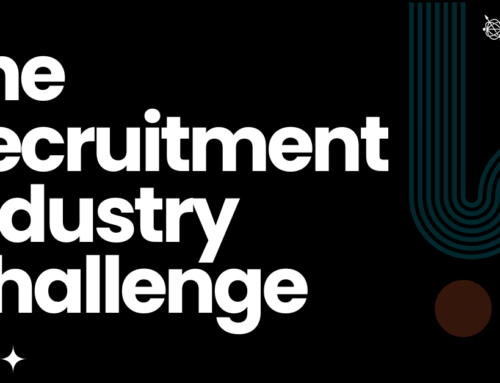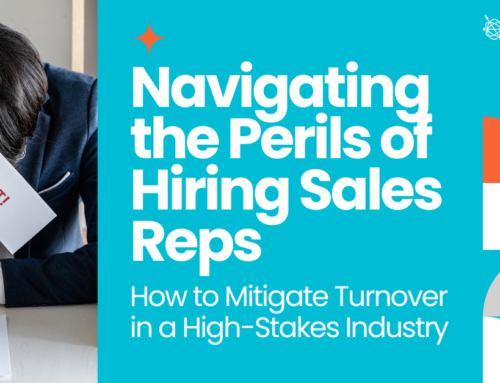
The Role of Social Media in Hiring Decisions
Introduction
In today's digital age, social media has become an integral part of our lives, influencing how we communicate, share information, and even conduct business. For employers, social media presents a double-edged sword in the recruitment process. While it offers valuable insights into potential candidates, it also raises pressing ethical concerns regarding privacy and transparency. This blog post will delve into the role of social media in hiring decisions, the implications for privacy, and how candidates' perceptions of a company's branding can significantly influence their decision to proceed with a job opportunity.
The Growing Influence of Social Media in Recruitment
Social media platforms such as LinkedIn, Facebook, Twitter, and Instagram have transformed the landscape of recruitment. Employers increasingly turn to these platforms to gain insights into candidates' professional backgrounds, personalities, and values. A survey conducted by Jobvite revealed that 92% of recruiters use social media to find and evaluate candidates, a clear indication of its growing significance in the hiring process.
However, while social media can provide a wealth of information about candidates, it also raises ethical questions. Employers must navigate the fine line between gathering useful data and invading candidates' privacy. The debate regarding the ethics of using social media profiles in recruitment is ongoing, with valid arguments on both sides.
Ethics and Privacy Concerns
One of the primary ethical concerns surrounding the use of social media in hiring decisions is the potential for bias. Employers may unintentionally allow their personal biases to influence their hiring decisions based on the content they find on candidates' social media profiles. For instance, a recruiter might overlook a highly qualified candidate simply because of their political beliefs or personal interests expressed online.
Moreover, candidates may not be fully aware of how their social media presence can impact their job prospects. Many individuals maintain personal accounts where they share opinions, photos, and experiences that may not accurately reflect their professional capabilities. Consequently, relying heavily on social media for hiring decisions can lead to misinterpretations and unjust exclusions.
From a privacy standpoint, candidates have a reasonable expectation that their personal lives should remain separate from their professional pursuits. The line between personal and professional can blur, especially on platforms like Facebook and Instagram, where users often share personal content. Employers should consider whether it is ethical to scrutinize candidates' personal lives when assessing their suitability for a role.
The Impact of Employer Branding
Employer branding is a crucial factor in attracting top talent. A company's reputation on social media can significantly influence candidates' perceptions of the organization. In today's competitive job market, candidates are no longer solely focused on salary; they also prioritize the overall workplace culture, values, and mission of a company. This shift in mindset has made employer branding more important than ever.
Job seekers often conduct extensive research on potential employers before applying for a position. They will likely visit the company's social media profiles to gauge its culture, values, and employee engagement. A strong, positive online presence can make a lasting impression on candidates, encouraging them to pursue opportunities with the organization. Conversely, a lackluster or negative social media presence can deter potential applicants from even submitting their resumes.
Furthermore, candidates are increasingly seeking transparency and authenticity from employers. They want to see real employees sharing their experiences and insights about the company. This desire for genuine engagement can be satisfied through social media, where companies can showcase their culture, values, and employee stories. By doing so, organizations can build a positive reputation that attracts high-quality candidates.
The Candidate's Perspective
As candidates embark on their job search journey, they are not just passive recipients of job offers; they are active participants in evaluating potential employers. The impulse to check a company's reputation online has become second nature for job seekers. Candidates often research a company's social media presence to gather information about its culture, values, and employee satisfaction.
This research can heavily influence their decision to apply or proceed with an offer. If candidates find a vibrant social media presence showcasing a positive work environment, they are more likely to feel comfortable accepting a position. On the other hand, if they encounter negative reviews or a lack of engagement, they may hesitate to pursue the opportunity further.
The phenomenon of "ghosting" has become increasingly prevalent in the job market, where candidates disengage from the hiring process without explanation. A company's failure to maintain a strong social media presence can contribute to this issue. If candidates perceive that an organization does not prioritize communication or engagement online, they may feel undervalued and choose to withdraw from the recruitment process altogether.
The Importance of Quality over Quantity
While social media can be a powerful tool in recruitment, it is essential for organizations to focus on the quality of their online presence rather than merely the quantity of posts or followers. A strong social media strategy should prioritize meaningful engagement with both current and potential employees. Companies should aim to create authentic content that resonates with their target audience and showcases their unique workplace culture.
Quality content can take various forms, including employee testimonials, behind-the-scenes glimpses of the workplace, and thought leadership articles that highlight the organization's expertise in its industry. By prioritizing quality over quantity, companies can foster a sense of community and connection with their audience, leading to stronger employer branding.
Moreover, organizations should also be mindful of the messages they convey through their social media channels. Every post, comment, and interaction reflects the company's values and culture. It is essential to ensure that the content aligns with the organization’s mission and vision, as inconsistencies can lead to confusion and mistrust among candidates.
As candidates increasingly seek out information about potential employers, a strong social media presence can significantly influence their decision to apply or accept a position. Employers who invest in building a positive online reputation and engaging meaningfully with their audience will be better positioned to attract and retain top talent.
Ultimately, the recruitment process should focus on quality—both in terms of the candidates being evaluated and the organization's online presence. By prioritizing ethical practices and fostering an authentic employer brand, companies can create a positive hiring experience that benefits both candidates and organizations alike.




